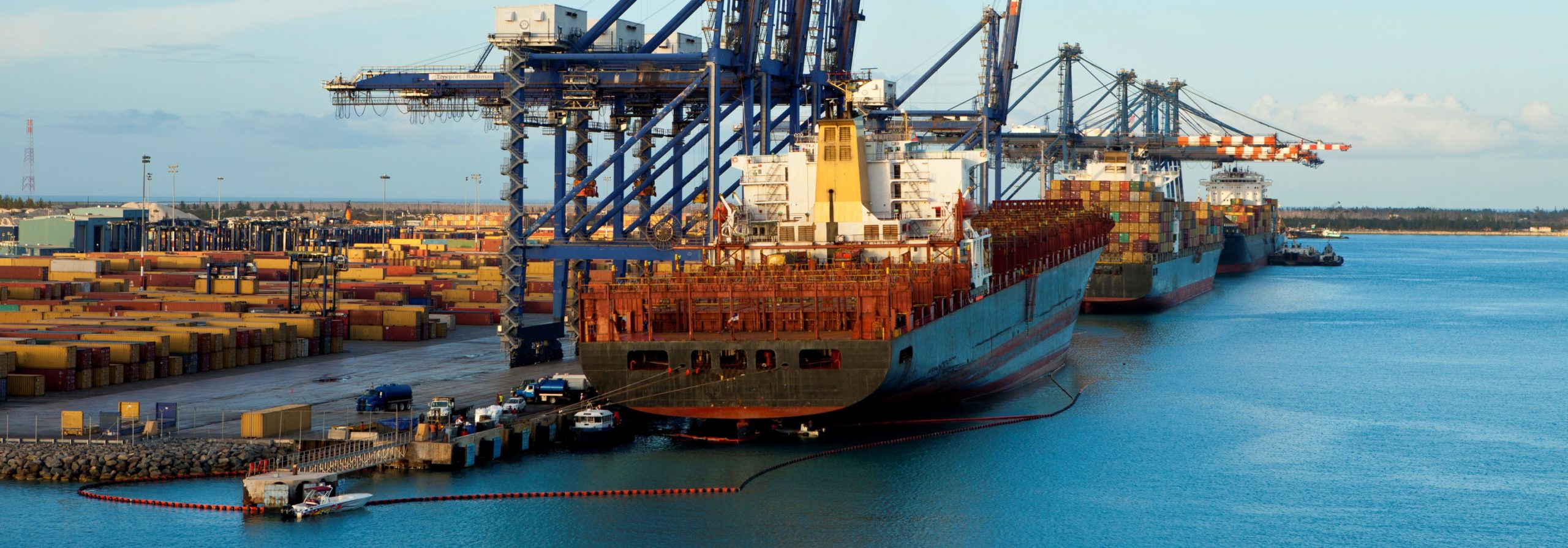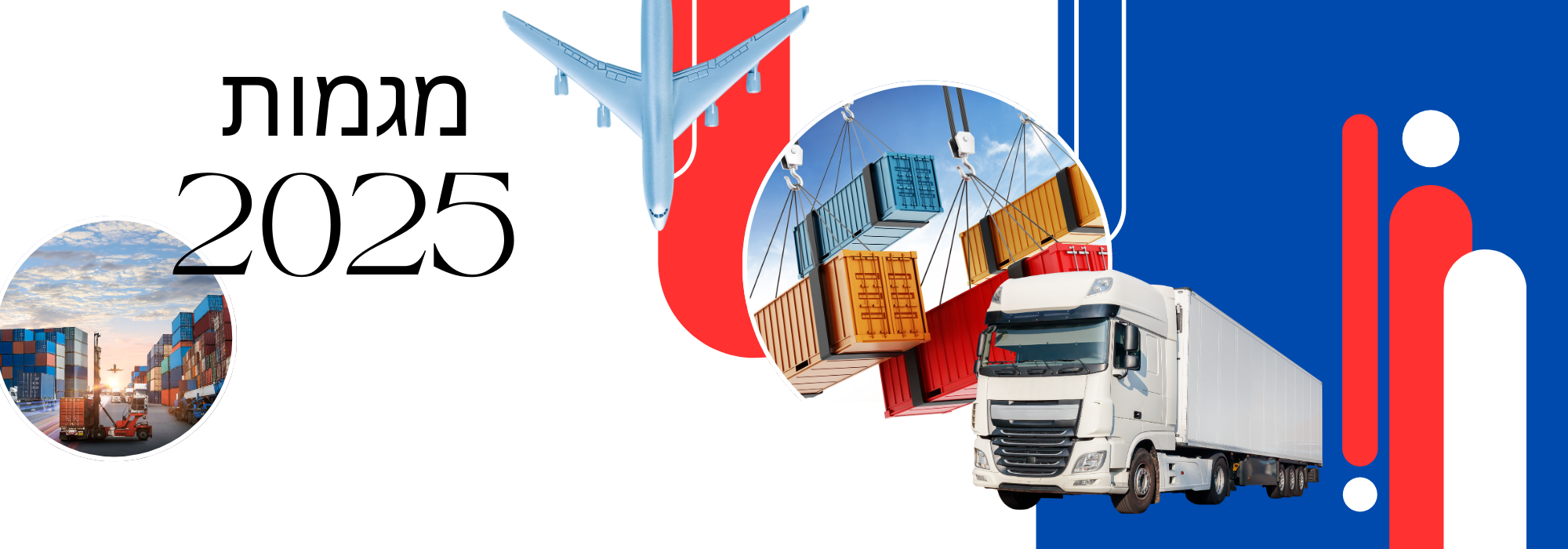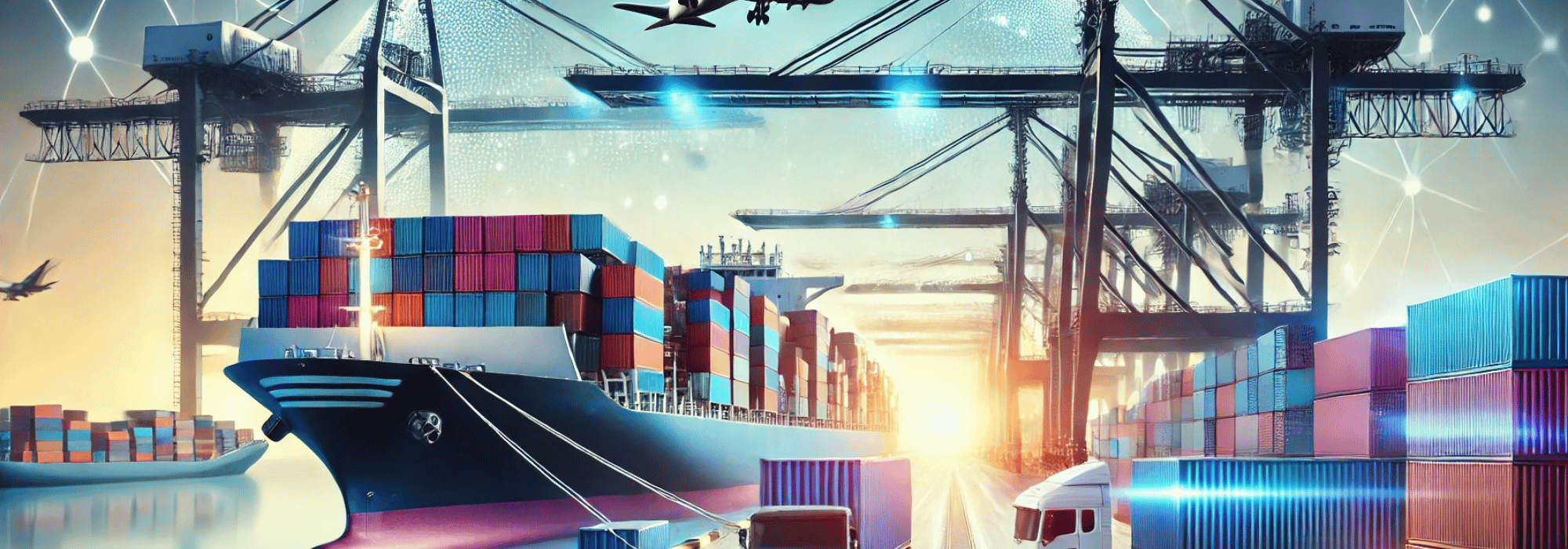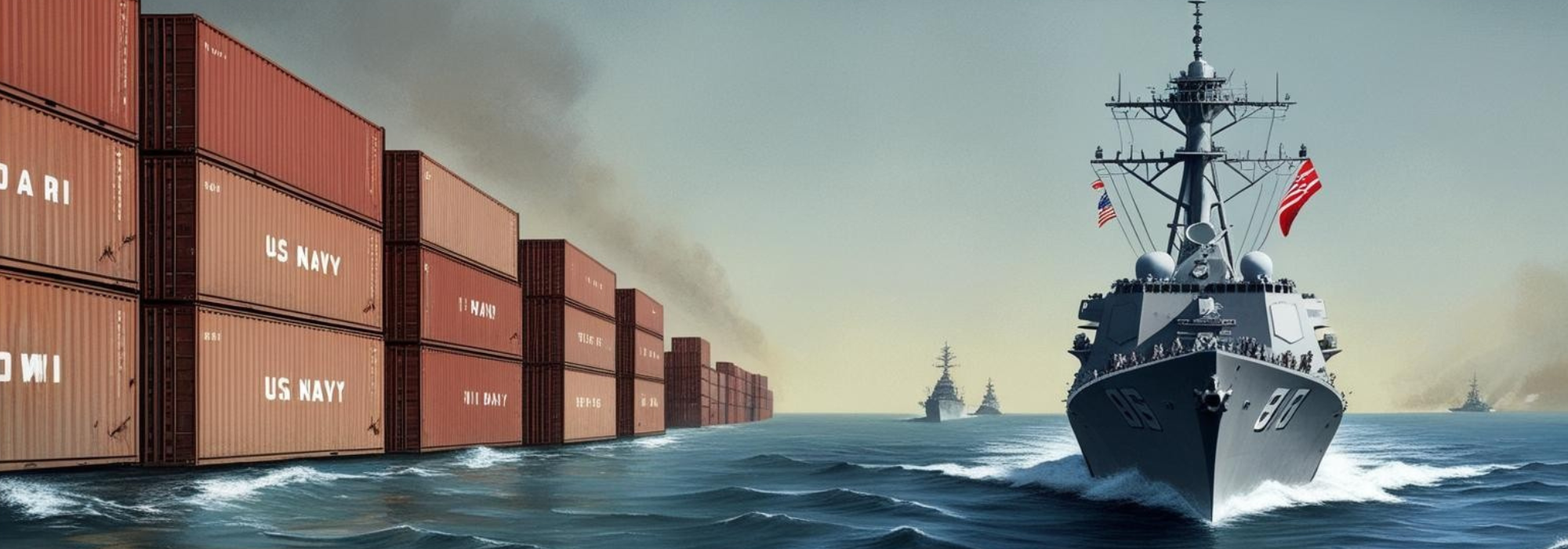Introduction
The world of importing is one of the most fascinating and dynamic fields in the global economy. As the world becomes more interconnected and technology provides direct access to suppliers from every corner of the globe, the temptation (and opportunity) to import goods from other countries and enjoy price differences or unique products increases. But alongside these opportunities, many pitfalls also lie in wait. Often, both seasoned and new importers discover that a small mistake or lack of knowledge can lead to delays, hefty fines, or even the loss of their merchandise.
The path from the purchasing stages abroad until the products arrive in Israel and are approved for release includes stops, inspections, and complex procedures. Each stage has its own rules, and if you don’t operate correctly, you quickly discover that there’s no shortage of customs “surprises.” In this article, we’ll delve into the most common mistakes importers make and explain how to avoid them. We’ll also highlight the added value of working with a professional customs broker, someone who knows every corner of the law and can save you a great deal of hassle and money.
We’ll also touch on real-life examples: from incomplete documentation that led to the merchandise being confiscated, through incorrect classification that doubled the tax, to ignoring regulations that almost caused a business to shut down. By the end of this read, you’ll have a rich toolbox that will help you walk confidently and wisely down the international import path.
The Importance of Understanding Customs Processes
Many people today assume that customs procedures are “just” a bureaucratic matter handled somewhere behind the scenes. In reality, customs plays a significant role in enforcing regulations, ensuring safety, and collecting taxes on behalf of the state. Any product that arrives from abroad must undergo an inspection—or at least documentation—explaining what the product is, its value, its country of origin, and whether any permits or special licenses are required.
An importer who doesn’t understand the implications of the customs process may quickly encounter a series of obstacles: delays of days or weeks in releasing the shipment, demands for additional payments that weren’t planned, and sometimes even the initiation of legal proceedings for a possible violation of import laws. Therefore, understanding “how customs thinks” is no less important than understanding “how to negotiate with suppliers.”
Furthermore, in Israel, there are regulatory bodies in addition to customs, such as the Ministry of Health, the Ministry of Agriculture, and the Standards Institute (Mekhon HaTkanim). Sometimes, the shipment also requires inspection from them. Each authority can set separate requirements, and it’s not always easy to know in advance exactly what’s needed. This point alone illustrates that an importer who thinks they can manage alone—without preparation or consultation—may find themselves in a “regulatory maze.”
A professional customs broker, on the other hand, knows the procedures, keeps track of legislative changes, and understands how to shorten processes and prevent mistakes. Thus, even before we dive into the common mistakes, it’s worth adopting the idea that working with a customs broker is not a “luxury”—it is often a real necessity that can save a lot of money.
Mistake #1: Ignoring the Definitions of Import Legality
The state (specifically the Tax Authority and Customs) defines, through a series of laws and regulations, what can be imported, under what conditions, and under which licenses. Not every product is “permitted” to enter the country, nor can every product be brought in unlimited quantities.
Many new importers realize too late that some products are restricted or prohibited from import—whether for health, environmental, or national security reasons. For instance, items such as weapons, auto spare parts, certain dietary supplements, and more. An importer who ignores these might find that the customs authority stops the shipment and not only charges fees but may also impose sanctions.
To avoid such situations, it is advisable to start any import process by doing research: check if there are any special restrictions on the product, whether an import license is required, whether there are any prohibitions or special demands, such as Hebrew labeling, a unique barcode, or laboratory tests. A customs broker or relevant advisor can help identify these requirements at the planning stage.
Mistake #2: Incomplete or Poor Documentation
One issue that always arises with customs surprises is documentation—or more accurately, the lack of quality, organized documentation. Customs requires a proper tax invoice, a packing list, and sometimes additional documents like a Certificate of Origin (in case you want to benefit from a trade agreement). If the documents are incomplete or do not match the shipment contents, it leads to delays and even suspicion of smuggling.
Another common mistake is providing contradictory documents or manually editing documents without aligning them with the guidelines. For example, if the packing list states 100 units but 120 actually arrived, customs will immediately become suspicious. Such a discrepancy isn’t necessarily intentional fraud, but it will result in an investigation, a demand for clarifications, and a stalled process.
The solution: work in full transparency and maintain precise documentation. Ensure the supplier provides you with accurate invoices and packing lists, and that there is no difference between the ordered quantity and what actually arrived. If working with a customs broker, send them the documents in advance so they can confirm them with the shipment.
Mistake #3: Incorrect Product Classification
Customs uses an international classification system known as the HS Code (Harmonized System)—an 8- or 10-digit code (depending on the country) that helps determine the customs duty rate, fees, and taxes on a product. Sometimes even small classification differences create large payment differences. Importers who don’t understand this system may, in good faith or ignorance, use a code that doesn’t match the product.
A common example: an item labeled as “electronics” actually has a component categorized differently and subject to higher duty. If customs discovers it, the importer will be charged the higher duty rate and might also face a fine. Conversely, there may be mistakes leading to overpayment if the importer classifies the product under a more expensive category than necessary.
Here lies the role of a professional customs broker. They know the right questions to ask and how to match the precise code for the product. Beyond saving money, correct classification ensures the product isn’t held in the port waiting for extended inspection.
Mistake #4: Skipping Regulatory Inspections and Permits
In some cases—especially for health products, food, cosmetics, chemicals, weapons, or electrical goods—a permit from bodies like the Ministry of Health or the Standards Institute is required. You must submit requests for inspection, provide data on the product’s composition, meet specific standards, and so on.
Common mistakes include assuming that items like “vitamins” or “dietary supplements” are “harmless” and don’t need approval. In practice, the Ministry of Health treats every supplement as a remedy requiring testing or at least an official declaration. Another example is electronic devices that must meet safety standards to prevent electric shock or unnecessary radiation.
If the importer ignores the need for a permit, they might find the shipment delayed in the port until the inspection is completed. This entails storage fees, wasted time, and could end in the shipment being destroyed or returned to the supplier if approval cannot be obtained.
To avoid this pitfall: before placing an order, check which standards or licenses apply to the product. If the Standards Institute’s approval is needed, find out in advance what the process is and how long it takes. That way, you won’t be caught by surprise halfway.
Mistake #5: Lack of Financial and Tax Planning
Importing isn’t just paying money to the supplier. You need to account for shipping costs, insurance, port storage fees, handling fees by the shipping company, the customs broker’s fee, customs duties, purchase tax if it applies, VAT, special levies, and so on. Many new entrepreneurs overlook this aspect, order goods at a seemingly attractive price, but then realize the “final bill” is multiple times higher.
A common yet frustrating example: someone buys clothing from China at a very cheap price, thinking they can sell it locally for a nice profit. Then they discover that the shipment is delayed, and the port warehouse charges “storage fees” for each day of delay. Additionally, they find they must pay 12% customs duties and another purchase tax they didn’t factor in. Suddenly, the order no longer looks so profitable.
Hence, before signing any order, it’s important to create a financial plan that calculates all costs, including potential expenses like regulatory inspections, handling fees, or even exchange rate fluctuations. That way you’ll better know if the order is genuinely worthwhile and if you can handle the expenses.
Mistake #6: Working with Unreliable Suppliers
Even if customs in your country runs smoothly, the importer may still face surprises from the foreign supplier: goods that don’t match the order, defective products, unclear quantities—these can all create customs issues, as the paperwork no longer reflects the shipment accurately.
Additionally, unprofessional suppliers may provide partial or incorrect documents, incorrectly price the shipment, pack products in a way that leads to damage, or delay shipping without notice. Any of these can result in complications with customs or increased costs (for example, storage fees) and considerable aggravation.
Thus, from the start, you should conduct a background check on the supplier, ask for references or other importers who have worked with them, or even use third-party quality control services that send a representative to the factory to confirm the product is ready as ordered.
Mistake #7: Overly Optimistic or Erroneous Expectations About Trade Agreements
Israel has trade agreements with many countries, such as the United States, the European Union, Australia, the EFTA countries, and more. In principle, these agreements allow for duty-free or significantly reduced duties. A mistake that some importers make is assuming that it’s enough for the product to be shipped from one of the member countries for them to receive the exemption. But that’s not always the case.
Trade agreements define “rules of origin,” specifying how much of the manufacturing process or components must come from that country for the product to be considered “domestic.” If the product is made from parts originating in China and only briefly “stops over” in the US on its way to Israel, Israel may not recognize it as an American product eligible for the exemption. An importer who doesn’t grasp these nuances might be surprised to pay the full customs.
The way to avoid this pitfall: thoroughly understand the rules of origin and obtain a properly signed Certificate of Origin from the supplier that proves the product meets these criteria. A knowledgeable customs broker can help verify in advance whether you’re truly eligible for any benefit.
Mistake #8: Poor Packaging and Shipping
Packaging quality and the shipping method are crucial factors in importing. Beyond the risk that the product could be damaged in transit—which translates into financial loss—there are regulations on container labeling, allowed weight, and conformance to transport conditions (cooling, ventilation, moisture protection, etc.). Violating packaging regulations can result in fines or destruction of goods.
Likewise, the shipping method—air, sea, or land—impacts costs, transit risks, and the time the goods spend en route. It’s not uncommon for importers to choose air shipping when they could have gone by sea and saved a lot of money (and vice versa). Also, regardless of cost, sometimes there are mandatory packaging or labeling requirements, such as for importing frozen foods that require a specific temperature.
A customs broker working in coordination with an international freight forwarder can advise you not only about costs but also about the local regulations in each port or border crossing. So you won’t be surprised if your products “get stuck” due to a packaging or labeling issue.
Mistake #9: Not Using a Professional Customs Broker
Perhaps the biggest mistake of all is trying to handle everything alone, especially if you’re new to importing or you’re dealing with complex goods. A customs broker is not just a “clerk” who fills out forms, but an expert in legislation, classification, release documents, and even in finding creative ways to reduce costs.
Many importers are wary of the customs broker’s fees, but in many cases, the partnership pays off by saving on delays and fines and sometimes by securing exemptions and special tariffs that far exceed the cost of the service. A customs broker represents you before the customs authorities and ensures your goods are cleared as quickly as possible. Without one, you might find you have no immediate solution in critical moments.
Usually, an experienced customs broker will review all the documents before the shipment leaves the supplier, confirm the correct classification, verify quantities, and ensure every form demanded by the regulator is available. This way, you avoid mistakes that can prove very costly.
Main Pitfalls and How to Avoid Them – Table
| Common Pitfall | What Happens in Practice | How to Avoid It |
|---|---|---|
| Ignoring Legal Import Limits | Shipment is stopped; license demands or outright bans | Check legality of import in advance; consult a broker |
| Incomplete or Poor Documentation | Suspicions of smuggling, delays, and questioning by customs | Maintain accurate documents; submit them on time |
| Incorrect Product Classification | Unnecessary taxes or fines | Have a professional expert do the classification |
| Failure to Check Regulations | Extended inspection, need for special permits | Inquire about product-specific rules, request permits |
| Poor Financial Planning | Suddenly rising costs, making the import unprofitable | Create a budget for duties, shipping, storage, etc. |
| Unreliable Suppliers | Non-matching products, incorrect documents, delays | Vet the supplier, establish trust and clear communication |
| Misuse of Trade Agreements | No actual customs exemption, end up paying full or penalties | Understand rules of origin, obtain valid CO |
| Poor Packaging and Shipping | Damaged goods, fines for weight/labeling violations | Follow packaging regulations; choose the right shipping mode |
| Skipping a Professional Customs Broker | Complications, lack of knowledge, risk of fines and delays | Hire a skilled broker early in the planning process |
How a Professional Customs Broker Saves You from Pitfalls
Extensive Professional Knowledge: A customs broker knows customs regulations in depth. They know exactly which document is required for each purpose, the current import laws, and which inspections or licenses you need. This prevents mistakes right at the start.
Familiarity with Customs Systems and Government Agencies: A customs broker maintains ongoing contact with customs officials, and sometimes with other authorities such as the Standards Institute or the Ministry of Economy. They know whom to approach to release a stuck shipment and how to expedite processes.
Product Classification Advice: One of the broker’s key skills is determining the correct classification for your product. Accurate classification can save significant tax costs and prevent fines.
Handling Paperwork and Bureaucracy: A customs broker handles document submissions, declarations, and clearance permits for you. This lifts a major burden off your shoulders and ensures the paperwork is correct and does not delay the shipment.
Real-Time Problem Solving: If an issue arises (like a minor document error or a customs suspicion), the broker can step in immediately, explain the situation, and resolve it.
How to Identify a Good Customs Broker
Proven Experience – A certain level of seniority in the field, familiarity with various product types.
Recommendations – Ask other businesses in the same sector if they know the broker and can attest to their professionalism.
Transparent Pricing – A serious broker will present the likely costs upfront and won’t surprise you with hidden fees.
Willingness to Listen – The broker should understand your business needs, product type, and unique challenges.
Risk Management and Advance Checks
The import world is full of risks. A supplier may fail to deliver on time, customs may tighten legislation, or certain products might suddenly become “prohibited” following a policy change. The best way to handle these risks is to be prepared.
Check Import Legality in Advance: Before finalizing a deal with a supplier, verify whether the product is fully legal, whether it requires a special license, or if there are any quotas or quantity restrictions.
Review Regulatory Requirements: If it’s an electrical device, check with the Standards Institute or the relevant regulatory body. If it’s food, consult the Ministry of Health about required documents. This way, you’ll know the process ahead of time and won’t be surprised.
Comprehensive Cost Analysis: Carefully calculate how much you pay the supplier, shipping costs, insurance, customs duties, VAT, and any special trade levies. Keep a financial “cushion.”
Ways to Cut Costs Without Taking Risks
Sometimes importers try to take shortcuts to save money—like declaring a lower value than the actual one to reduce customs. This is highly illegal and risky. Instead, there are legal ways to cut costs.
Using Trade Agreements Properly: Ensure the products truly meet the rules of origin, obtain a Certificate of Origin, and leverage exemptions or reduced customs rates.
Negotiating with the Supplier: Sometimes suppliers are willing to split shipping costs or offer quantity discounts. It’s worth asking.
Consolidating Shipments: If you have several small orders or if you know other importers who need shipping from the same area, you can combine them into one container to save on costs.
Choosing an Economical Shipping Route: Sea freight is cheaper than air freight but takes longer. Sometimes you can combine the two if some goods are urgent and others aren’t.
Flexibility and Adaptation to Market Changes
Regulations and the economic environment are constantly changing. For example, geopolitical shifts can affect protective tariffs (as has happened multiple times between different countries), change import standards, or even lead to quotas that a country imposes to protect local industry. An importer who ignores the changing reality may one day find their business model is no longer viable.
Follow Official Announcements: The Tax Authority, the Ministry of Economy, the Standards Institute—they all publish updates and guidelines.
Maintain Contact with Your Broker: A good broker will inform you of legislative changes or market fluctuations that may affect your imports.
Plan for the Medium and Long Term: Don’t base your business on fixed assumptions about duty rates or regulatory requirements. Always add a safety margin and keep in mind that costs may change.
Basic Work Sequence Recommendation Before Each Import
Check Import Legality: Verify whether the product is allowed to be imported or if there are any restrictions.
Confirm Product Classification with the Customs Broker: Make sure you know the customs duty and purchase tax rate.
Check Which Licenses or Permits Are Required: Ministry of Health, Ministry of Agriculture, Standards Institute, etc.
Plan Your Finances: Calculate all costs, including storage and possible fees.
Organize the Required Documents: Commercial invoice, accurate packing list, Certificate of Origin if relevant.
Choose a Freight Forwarder and Shipping Method: Air, sea, combination?
Track the Shipment Until It Arrives: Be prepared for possible delays.
Handle Customs Clearance: Usually done via a customs broker.
Real-Life Examples of Costly Mistakes
Example One: An entrepreneur classified loads of clothing as “accessories,” thinking the duty on accessories was lower. Customs discovered the error, recalculated the debt retroactively, and imposed an additional fine.
Example Two: A company ordered medical equipment without the Ministry of Health’s approval. The equipment was held at the port for months and eventually had to be returned to the supplier. Storage and return fees amounted to tens of thousands of shekels.
Example Three: A toy importer assumed that the toy safety standard didn’t apply to a relatively simple item. Eventually, it turned out that even products considered “harmless” require a specific Standards Institute check. The shipment was delayed, and the business couldn’t meet its commitments.
The Importance of Internal Procedures in the Import Organization
Even if your organization is just one person, it’s worth establishing clear procedures. Who checks the product classification with customs? Who is responsible for regulatory checks? How are documents handled? The more complex your operations become, the higher the risk of mistakes caused by “dropped balls” between different departments.
Document Management: Assign a dedicated digital folder for each shipment, with subfolders for invoices, packing lists, supplier correspondence, regulatory approvals, etc.
Ongoing Updates: Make sure every relevant person in the business receives updates about shipment dates, new customs demands, or discovered problems so that surprises don’t arise at the last minute.
Honesty and Adherence to Customs Laws
Some importers sometimes try to declare a lower value than the real one on documents, state a smaller quantity, or claim the shipment is a “gift.” Besides being a criminal offense, keep in mind that customs is far from naive. They compare the declared information with known market prices. If there’s a significant discrepancy, suspicion of smuggling or false statements arises.
The result could be not only a large fine but also the confiscation of the goods or even legal action. The risk isn’t worth it. And if you are caught, it’s much harder to earn trust in the future. It’s important to remember that authorities operate with extensive data, international cooperation, and algorithms that flag suspicious shipments.
Special Adjustments for Small Businesses or Startups
Small businesses or startups importing for the first time can especially suffer from a lack of knowledge or “bureaucratic shock.” They may not understand why so many forms are required. But precisely in small businesses, every small mistake can be very costly.
Hence, professional advice early on is strongly recommended, and keep in mind that a professional customs broker is a partner—not an enemy—who can guide and explain.
What to Do If You Make a Mistake?
In reality, even professional importers can make mistakes or encounter problems. What should you do if you misclassified a product or didn’t secure a required permit?
Contact Your Customs Broker: Explain what happened. They’ll advise on immediate steps and documents to submit.
Talk to the Authorities: In some cases, you can approach customs and explain that it was an honest mistake, attempting to reach an arrangement.
Check the Possibility of Correcting the Documents: Sometimes you can submit an amended or sworn statement and pay the difference.
Learn from the Mistake: Record procedures to avoid the same error in the future.
Conclusion
Customs surprises are not an unchangeable fate. Most “surprises” result from mistakes that could be avoided with prior knowledge, proper planning, and professional advice. From understanding import definitions, through accurate document declarations, wise product classification, paying attention to permits and regulatory approvals, and smart collaboration with suppliers—each step can be done systematically.
Throughout the article, we’ve seen that a customs broker plays a key role in preventing pitfalls: they understand the laws, know the nuances of classification and taxation, and are skilled at navigating Israel’s complex bureaucracy. Don’t skip on their services just to “save” a few shekels, because the damage caused by not having guidance can be much greater.
Importing is indeed an adventure: you can find business opportunities, diversify your product range, and profit. But like any adventure, you must beware of traps. Sticking to the principles mentioned here will reduce the likelihood of encountering unpleasant customs surprises and help you advance your business or project smoothly, legally, and efficiently.



















